
-
 Japan startup hopeful ahead of second moon launch
Japan startup hopeful ahead of second moon launch
-
Ukraine allies to hold last defence meet before Trump takes office

-
 Myanmar military adopts anti-junta fighters' drone tactics
Myanmar military adopts anti-junta fighters' drone tactics
-
CES tech looks to help world's aging population

-
 Rubber tappers forge sustainable future in Amazon
Rubber tappers forge sustainable future in Amazon
-
US astronauts upbeat seven months into eight-day mission

-
 Extreme weather, suburban sprawl fuel LA's wildfires
Extreme weather, suburban sprawl fuel LA's wildfires
-
Political chess or true beliefs? Zuckerberg's surprise Trump pivot

-
 US Fed officials concerned over 'stalled' disinflation, tariffs: minutes
US Fed officials concerned over 'stalled' disinflation, tariffs: minutes
-
Celebrities flee Los Angeles fires as Hollywood events scrapped

-
 Several US Fed officials concerned over 'stalled' disinflation: minutes
Several US Fed officials concerned over 'stalled' disinflation: minutes
-
US tech titans ramp up pressure on EU

-
 'Wicked' tops SAG Awards nominations
'Wicked' tops SAG Awards nominations
-
Safe from looting, Damascus museum reopens a month after Assad's fall
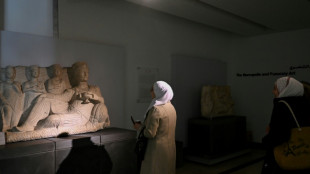
-
 Award-winning migrant actor earns visa to stay in France -- as a mechanic
Award-winning migrant actor earns visa to stay in France -- as a mechanic
-
Celebrities forced to flee Los Angeles blazes

-
 US tariff and inflation fears rattle global markets
US tariff and inflation fears rattle global markets
-
US private sector hiring undershoots expectations: ADP

-
 US tariffs unlikely to have 'significant' inflation impact: Fed official
US tariffs unlikely to have 'significant' inflation impact: Fed official
-
Lebanon leaders in talks for new bid to elect president

-
 Antarctic sea ice rebounds from record lows: US scientists
Antarctic sea ice rebounds from record lows: US scientists
-
Can EU stand up to belligerent Big Tech in new Trump era?

-
 US, Canadian and Australian travellers now face UK entry fee
US, Canadian and Australian travellers now face UK entry fee
-
Indonesia upholds iPhone 16 sales ban after Apple offers $1 bn investment
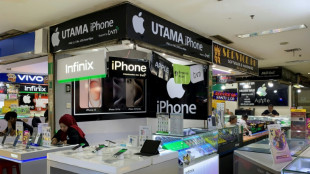
-
 UK's Catherine turns 43 hoping for better year
UK's Catherine turns 43 hoping for better year
-
OpenAI chief Sam Altman denies sister's sexual abuse accusations
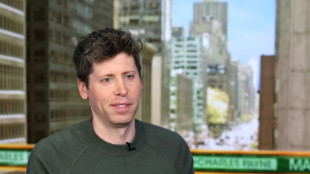
-
 Germans turn to balcony solar panels to save money
Germans turn to balcony solar panels to save money
-
Samsung warns fourth-quarter profit to miss forecasts

-
 Brazil gears up for first climate conference in Amazon
Brazil gears up for first climate conference in Amazon
-
Iraqi archaeologists piece together ancient treasures ravaged by IS
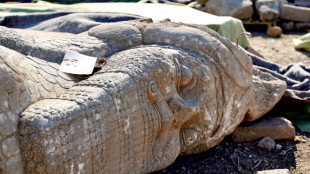
-
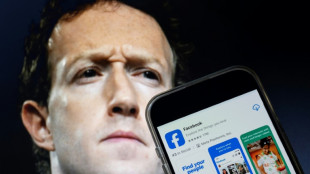 Big Tech rolls out the red carpet for Trump
Big Tech rolls out the red carpet for Trump
-
Former US president Carter lies in state after somber Washington procession

-
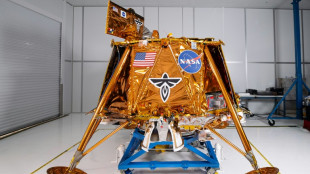 US company Firefly Aerospace to launch for Moon next week
US company Firefly Aerospace to launch for Moon next week
-
No proof fentanyl produced in Mexico, president says

-
 Biotech Startups Get a Boost: ZAGENO and Hatch.Bio Labs Partner to Streamline Lab Operations
Biotech Startups Get a Boost: ZAGENO and Hatch.Bio Labs Partner to Streamline Lab Operations
-
Mosquitoes with 'toxic' semen could stem disease spread: research
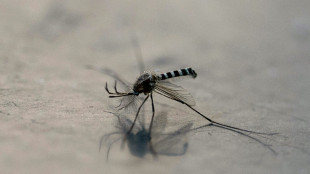
-
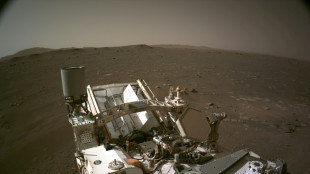 NASA eyes SpaceX, Blue Origin to cut Mars rock retrieval costs
NASA eyes SpaceX, Blue Origin to cut Mars rock retrieval costs
-
Invisible man: German startup bets on remote driver

-
 US urged to do more to fight bird flu after first death
US urged to do more to fight bird flu after first death
-
Inflation concerns pull rug out from Wall Street rally

-
 Frigid temps hit US behind major winter storm
Frigid temps hit US behind major winter storm
-
US trade deficit widens in November on imports jump

-
 Key dates in the rise of the French far right
Key dates in the rise of the French far right
-
Hundreds of young workers sue McDonald's UK alleging harassment

-
 Eurozone inflation rises, likely forcing slower ECB rate cuts
Eurozone inflation rises, likely forcing slower ECB rate cuts
-
Microsoft announces $3 bn AI investment in India
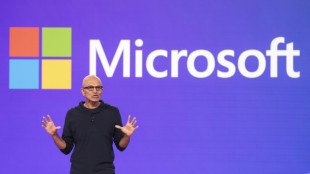
-
 French far-right figurehead Jean-Marie Le Pen dies
French far-right figurehead Jean-Marie Le Pen dies
-
Pope names Sister Brambilla to head major Vatican office

-
 Eurozone inflation picks up in December
Eurozone inflation picks up in December
-
Japan actor fired from beer ad after drunken escapade
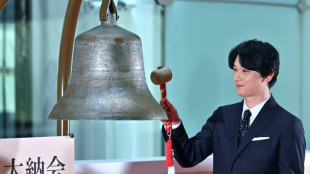

As costs jump, Sao Paulo Uber drivers set to launch rival app
The Uber driver's phone bleeps out the signal to pick up a passenger, but he checks the distance and declines: with fuel prices soaring in Brazil, "I've become a mathematician at the wheel," he says.
Surging inflation has left many Brazilians struggling to make ends meet, and ride-hail drivers have been especially hard-hit.
Fuel prices increased nearly 50 percent last year, and the apps the drivers depend on claim a sizeable share of what's left.
But now, drivers in Sao Paulo, a sprawling city of 12 million people, are about to launch an app of their own, taking on the likes of industry giant Uber with a platform they say will give drivers a better deal.
"With gasoline so expensive, I have to do split-second math before every trip to make sure it's worth it, so I don't end up giving the passenger a free ride," says Sao Paulo Uber driver Valmir, 56, who asked that his last name not be used.
"I'm working 12-, 13-, sometimes 14-hour days to make the same money I used to" -- between 250 and 300 reais ($48-$57) a day before expenses, he says.
That problem has led a group of Sao Paulo's 150,000 app drivers to organize and develop a mobile app of their own, backed by the Sao Paulo Association of Application Drivers and Delivery Workers (AMMASP).
It is called Me Busca, which roughly translates as "pick me up."
"We want to offer drivers the conditions that the (ride-hailing) companies don't: better pay, more security and better-quality work," AMMASP president Eduardo Lima told AFP.
Its creators say Me Busca will offer prices similar to competitors like US-based Uber and 99, which is owned by China's Didi.
The app is due to launch in March, and thousands of drivers have already signed up.
- Ends not meeting -
Inflation came in at a painful 10 percent in Brazil last year, driven by the economic havoc of the coronavirus pandemic.
Price increases for some sectors were far higher, including 49 percent for fuel.
The pandemic has also swelled the ranks of the struggling and unemployed.
Raniel de Queiroz, a 42-year-old tech worker, has started supplementing his day job as a data backup analyst with eight-hour nights as a ride-hailing driver.
"My salary isn't going up, but prices are. Driving was a way to earn some extra money and keep up with the country's inflation situation," he says.
But his treatment by the app he drives for "has gotten more and more unfair," he adds.
- Re-slicing the pie -
The fares paid by app users rose 60.5 percent last year in Sao Paulo.
Drivers say they are barely seeing that money.
The apps "take advantage of high unemployment in Brazil" -- currently 11.6 percent -- to keep driver pay low, says Marlon Luz, a city councilor who represents the drivers.
He says the apps retain anywhere from 14 to 40 percent of each fare, sometimes even rising as high as 60 percent.
Me Busca will pay drivers "around 2,000 reais more per month than what they make now, for working the same number of hours," he says.
Uber, which arrived in Brazil in 2014, says drivers "always keep the majority of the fare users pay."
"In Sao Paulo, estimated weekly earnings rose to 1,500 reais last month, for a 40-hour work week," the company told AFP.
Surging fuel prices made many Uber drivers cut back on trips last year, leaving riders with long wait times or even stranded.
The company said it was trying to fix that with incentives such as dynamic pricing to lure drivers.
App 99 meanwhile said it increased driver pay by 10 to 25 percent last year, and is offering eight percent more per kilometer this year in Sao Paulo.
Drivers aren't convinced.
"We hope the new app works," says Queiroz. "If it does, they're going to wish they had listened to us."
M.Anderson--CPN
